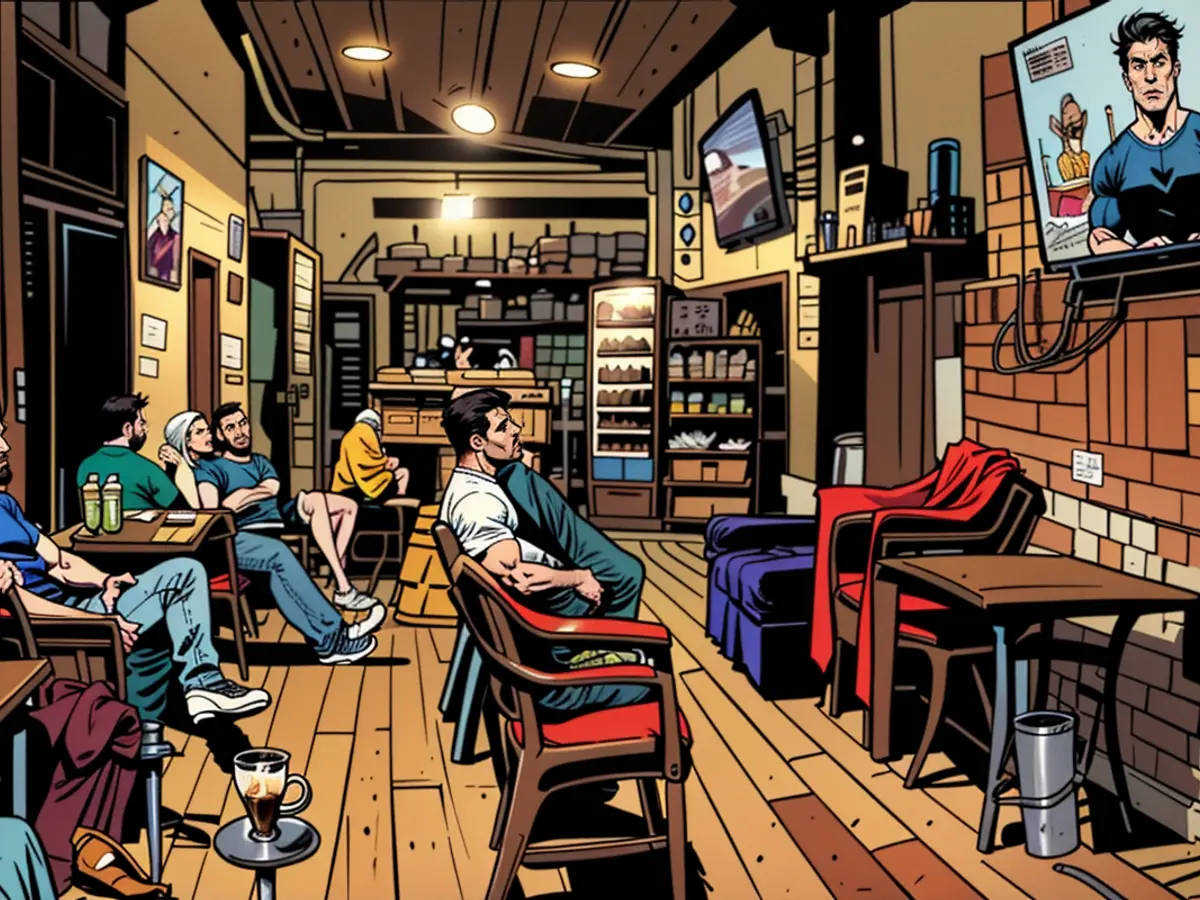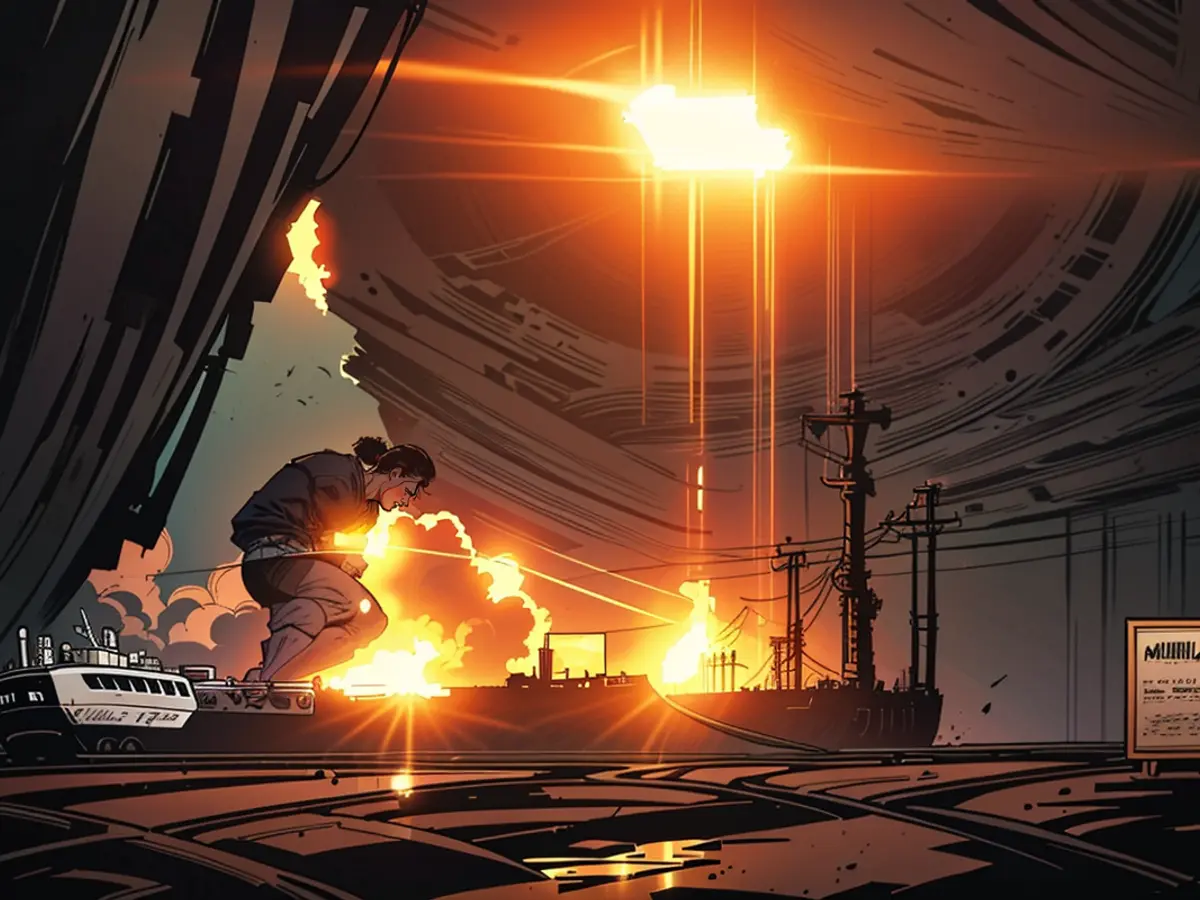Intensifying clashes between the Lebanese Hezbollah militant group and Israel
Based on Hezbollah's account, their fighters unleashed numerous rockets onto "enemy territories" along the border with Israel in the early hours, also releasing numerous combat drones. This action was retaliation for the demise of their military head, Fuad Shukr, who succumbed to an Israeli airstrike in Beirut towards the end of July.
As per Hezbollah leader Hassan Nasrallah, the primary objective of this assault was the Israeli military base of Glilot near Tel Aviv, allegedly housing the "primary headquarters of Israeli military intelligence services." Nonetheless, an Israeli army spokesperson spoke to AFP, elucidating that the Glilot base was unaffected.
Nasrallah challenged claims made by Israeli Prime Minister Benjamin Netanyahu stating that Israel had derailed numerous Hezbollah rockets and decimated lots of rocket launchers. He declared that only "a handful" of launchers were wrecked. In Hezbollah's view, the offense against Israel was a "total triumph."
The Israeli military dispatched around 100 fighter jets to demolish Hezbollah rocket launchers aimed at northern and central Israel. Subsequently, Israeli Prime Minister Netanyahu concluded at a cabinet meeting that these Israeli preemptive strikes on Lebanon targets aren't the "final act" in the confrontation against Hezbollah, stating, "Whoever harms us, we injure them."
David Lammy, the British Foreign Secretary, prompted the conflicting parties to refrain from further intensification in the Middle East "under any circumstance." During a phone conversation with Israeli Minister of Strategic Affairs Ron Dermer, he emphasized London's backing for Israel's security, in addition to "the significance of forbearance."
In response to the heavy shelling, Israel enacted a 48-hour state of emergency, with the Iron Dome air defense system activated. Videos obtained by AFPTV displayed countless Israeli interception missiles launching over northern Israel. An AFP photographer reported witnessing a Hezbollah drone brought down by the Israeli air force.
As stated by the Israeli army spokesperson Nadav Shoshani, the Sunday rocket attack was component of a larger offensive that Hezbollah had been paving the way for some time. The majority of this offensive was thwarted on this occasion, he acknowledged.
Eyewitnesses in the northern Israeli town of Acre reported a building that had been struck by a rocket, resulting in damage to three adjacent houses. Three casualties were reported in Lebanon due to Israeli attacks.
Hailing from the Iran-affiliated Houthi militia in Yemen, a welcoming statement was issued for the Hezbollah attack, declaring that a comparable response to an Israeli attack on the Yemeni port city of Hodeida earlier this month will follow.
Consequently, British Airways and Air France have momentarily suspended flights to and from Tel Aviv due to the prevailing conditions. Lufthansa had previously extended the halt of its flights to Beirut until the end of September and is not conducting flights to Tel Aviv or Tehran until the 2nd of September.
The British Foreign Secretary, David Lammy, urged both parties to avoid further escalation in the Middle East, emphasizing London's support for Israel's security and the importance of restraint. During the incident, the Israeli Prime Minister, Benjamin Netanyahu, stated that Israel's preemptive strikes on Lebanon targets were not the "final act" in the confrontation against Hezbollah.
In light of the conflict, the role of 'The President of the Council' in mediating a peaceful resolution between the parties could prove crucial in deescalating tensions and preventing further escalation. Despite the challenges, it is essential for 'The President of the Council' to exercise diplomatic efforts to promote dialogue and negotiation, ultimately working towards a ceasefire and peaceful coexistence.








